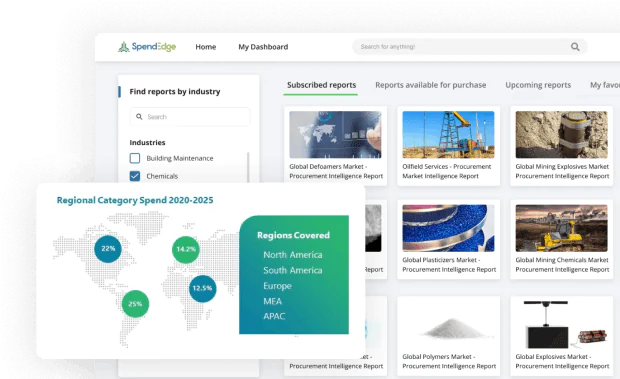SpendEdge portal gives us ready access to info on 50+ categories. And with the “Analyst Support” feature, our team is able to get all of its queries answered almost instantly by SpendEdge's panel of top-notch procurement experts. It’s really a time-saving tool!
Branded packaged foods business
- Senior Vice President (Global Supply Chain)
Thanks to the SpendEdge tool, our teams can directly access news articles focused on the procurement landscape. These cover a lot of ground, providing snapshots of industry, suppliers, and procurement tech. Previously, our category managers had to wade through a huge amount of information to get these news updates. So, SpendEdge is saving us a lot of time. That’s really something!
Well-known ICT firm
- Director of Global Procurement
SpendEdge's pricing insights section is something our team loves the most. Understanding pricing models, price points, and negotiation levers is a bit tricky. All these are covered in the SpendEdge reports, and that helps us gain quick insights.
A leader in chemicals
- Director of Indirect Categories Procurement








